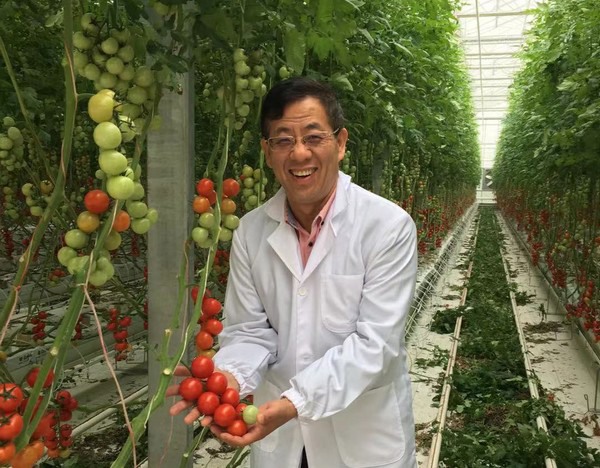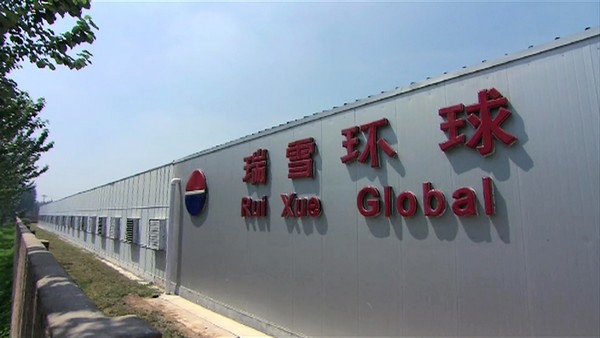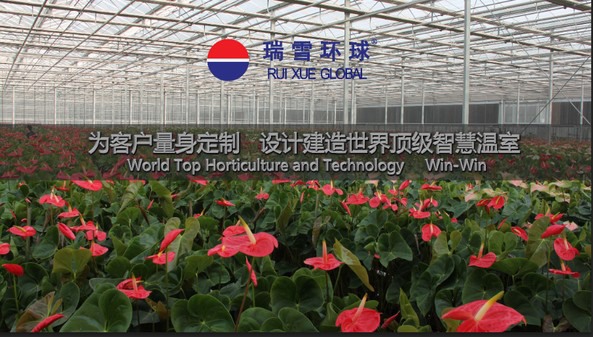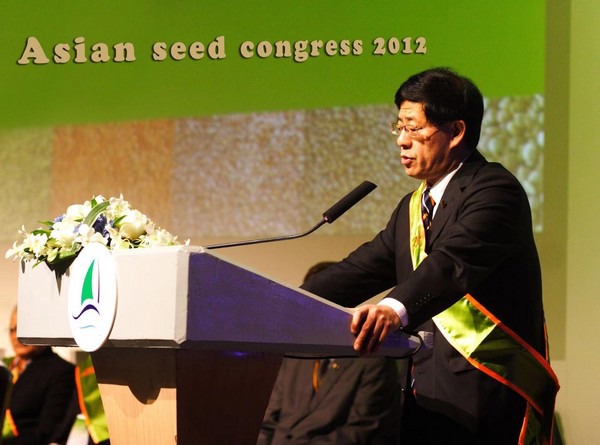Over recent years, more and more high-tech greenhouses have been built in China, and the use of high-end technologies has become increasingly common among enterprises. Whether for growing or management, more and more greenhouse growers are turning to automated solutions and are often looking for solutions from the Netherlands. Dr. Huang Ruiqing, Chairman of Beijing Ruixue Global Technology Co., Ltd., a company that has been committed to introducing Dutch horticultural technology to China as early as 2002, shared his insights on how the industry can optimize the use of these technologies.

An all-around supplier for Dutch horticulture technologies
As early as 2002, Ruixue Global, one of the earliest all-around suppliers of horticultural technologies, built a bridge between Dutch technologies and the Chinese horticultural industry to provide tailor-made greenhouse solutions. "We want to be a technology supplier for a complete set of horticultural services." Dr. Huang said, "We focus on the field of smart greenhouses and offer customers assistance right from the design stage. In this way, we want to help horticultural customers at home and abroad to reach maximum yields. "

However, reaching maximum yields is a challenge for Chinese growers. "At present, there are about over 1,000 hectors of Venlo greenhouses in China, while an additional area of 200 hectares is added each year." Dr. Huang said, “Horticulture production in China using the Dutch model has not yet reached the same level as in the Netherlands in terms of yield, production efficiency, and revenue. We can't help but wonder what has caused this difference.”
Dr. Huang believes that there are various reasons for it. "The industry chain, the production process, the level of training of greenhouse and management staff, market operations, and many other factors play a part in it. Companies can introduce the Dutch model but it is difficult to successfully replicate the entire system in a short period of time. To create a development model that works for the modern horticulture industry in China takes a long time. "

Specialization
However, Dr. Huang is convinced that there are many opportunities to systematically improve the overall level of the greenhouse horticulture industry in China. The first is the specialization of products and production processes.
"Taking Dutch companies as an example, there are specialized companies responsible for the building of greenhouses, the purchase of seedlings, planting, testing, the processing of rock wool, product promotion, and marketing. However, such supporting industries are not developed in China, and most horticultural companies need to handle all aspects of the business on their own, which means that they need to spend a lot of time consulting, comparing and searching, instead of focusing on production, leading to a waste of manpower and resources. This makes it difficult to achieve specialized production."
Therefore, Dr. Huang believes that only by improving the system of specialized services, developing a specialized production management team, and improving yields and quality, can companies effectively improve the level of greenhouse management and the production capability and efficiency. “This is essential for creating a good profitable environment." Dr. Huang said.
Standardization
Standardization is the second point raised by Dr. Huang. "This refers to standardized production, processes, and products." Dr. Huang said, "What we can learn from the Dutch industry is how they set standards to ensure stable product quality. In China, we see that companies do not have stable production processes, the technical staff have varying capabilities, and workers don’t operate in a standardized way, which has also led to a decline in product quality."
Dr. Huang explained," There are no specialized standards in place for agricultural products and pricing. Due to the lack of standardization, especially for the premium agricultural product market represented by the greenhouse industry, most consumers are unable to identify the quality of the products. The development of these standards is essential to improve the level of the industry and the profitability of enterprises. Higher quality products should get higher prices in the market. "
Increase in scale
Projects in China need to be larger, and Dr. Huang explains why large-scale projects are critical to corporate profitability. "Most Dutch companies adopt intensive large-scale production, which means high investment and high yields. The profitability of Venlo greenhouses is built on a certain scale. I think that companies need to increase their total investment when the acreages exceed 4 hectares, but the capital investment needed per production unit will reduce, as companies will be able to make better use of their capital, workers, and human resources. All these can increase efficiency and speed up return on investment. "
Marketization
Finally, Dr. Huang pointed out the importance of the market in industry development and why the market system in China needs to be transformed. "In the Netherlands, the development of horticulture is based on a commercial system, which makes it possible to operate commercially in order-based production and the flower auction markets. However, the insufficient sales channels for modern horticultural products in China result in a disconnect between production and the market, and therefore cannot guarantee sales outlets for quality produce. China has not yet formed a complete market operation system suitable for modern greenhouse production. There are many links between production and the market and the interests of producers are not safeguarded. "

Modernization of Chinese horticulture
"The above four points are the experience we can draw from the success of the Dutch industry.” Dr. Huang concluded. Ruixue Global has been working closely with many horticultural companies including Verkade, Mardenkro, HortiXS, Horticoop, Priva, NPI, and Staal & plast to bring advanced technologies, products, and equipment to China, and to help China's industry to upgrade.
“We have been working hard to put things into practice and hope to lead the Chinese horticulture industry in achieving its goals in innovation.” According to Dr. Huang, the company has built a 4 hectare of the modern agricultural park featuring Venlo greenhouses in Beijing and introduced the Dutch greenhouse design philosophy, supporting equipment, and management techniques to the industry in China.
Since its establishment, these greenhouses have attracted visitors from many universities, research institutions, government bodies, and enterprises. "We also introduced Dutch horticultural technologies to the Chinese market, trained workers and managers, and showed them the possibilities of promoting Dutch horticultural technologies. These are all our efforts in making a contribution to the development of China’s horticultural industry."
More information:
Contact: Professor Huang Ruiqing
Company: Beijing Ruixue Global Technology Co., Ltd.
Phone: +86 13601314311, +86 13911026869
Email: ruiqinghuang@ruixueglobal.com
